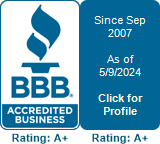Crowdfunding Your Business? 3 Tax Tips

Crowdfunding is a boon for today's entrepreneurs. It allows individuals - friends, family, and strangers alike - to help you fulfill your business dreams and create valuable new products without the obstacles and setbacks of traditional venture funding.
If you are planning to start a crowdfunding campaign for your new business idea, though, you'll need to understand how to account for and report this income and its associated expenses. Failure to do so could create new hassles and open you up to problems with everyone from the IRS to state oversight agencies.
So, what should you know about accounting for your campaign? Here are three key things you must do now.
1. Choose the Right Entity
Crowdfunded donations to a business are generally considered to be reportable - and potentially taxable - income. While the IRS rules around this new form of funding are still somewhat vague, you do well to start out by assuming that you'll need to report it and pay taxes on it.
How that income is taxed, though, also depends on the business structure you choose. Income of a passthrough entity, such as an S corporation or sole proprietorship, is generally passed on to the owners and must be declared no matter how it was (or wasn't) yet used. A C corporation, though, pays income taxes at the business level rather than at your personal level. You may, therefore, have more leeway for tax purposes.
2. Report Income at the Right Time
Income is generally reported for income taxes when it is constructively received. Constructive receipt means that the money is available for the business to use how they see fit and that it has no other obligations tied to it. A loan that must be paid back is not 'constructively received' income because you must return the money. But a check you have not yet deposited is constructively received.
Following this idea, when crowdfunded money is available for your use without obstructions, it would likely be reportable income. Crowdfunded campaigns can be tricky in this area, though. A pledge to give money in the future is likely not constructive receipt of the funds. And money that is considered to be part of a long-term contract that is not yet fulfilled could also be considered not constructively received.
When your funds are constructively received, then, may depend on how your campaign is set up and what type of services (or products) are expected in return.
3. Decide Between Cash and Accrual Accounting
The decision to use cash method accounting or accrual method accounting is important for a crowdfunded business venture. With cash method accounting, you report income and expenses paid when money actually changes hands. You might, then, take in money for your campaign long before you pay any expenses. In this case, you have a lot of taxable income without expenses to counter it.
On the other hand, accrual accounting reports income and expenses when they are earned or incurred. In this scenario, you would report those expenses when you incur them rather than when you actually pay the money. This might better match up the timing of your funding and the associated expenses.
Clearly, accounting for this type of business funding can be complicated. For the best results consult with an experienced accounting service before starting your crowdfunding efforts. The earlier you seek professional assistance, the easier these aspects will be.
At Quality Bookkeeping Services Inc., we can help. Our accounting professionals are ready to guide you through everything from the selection of a business entity to how to choose the right accounting method for your particular needs. Call today to make an appointment and start your crowdfunding journey.













